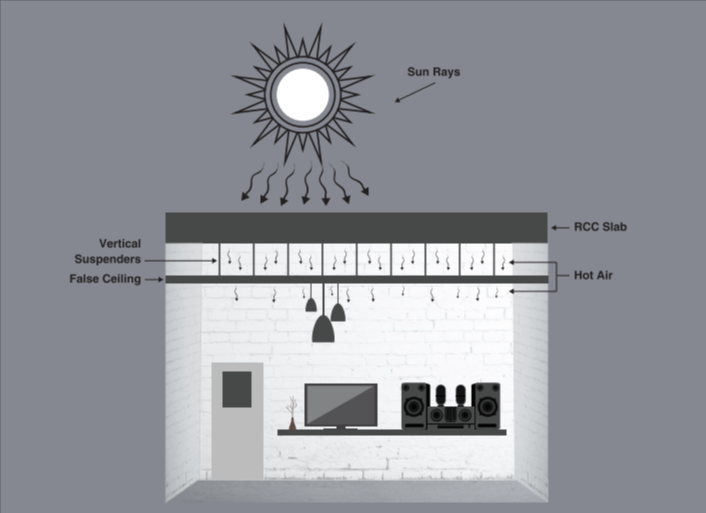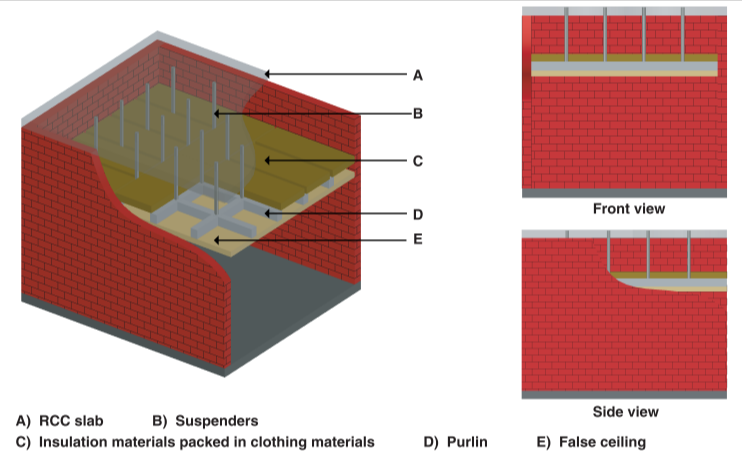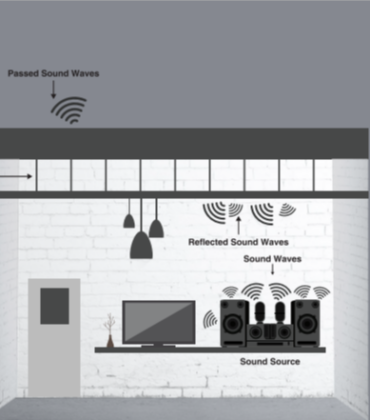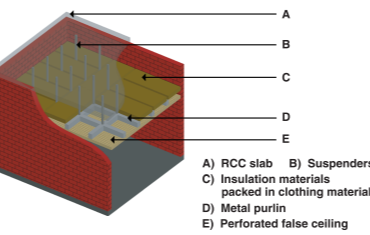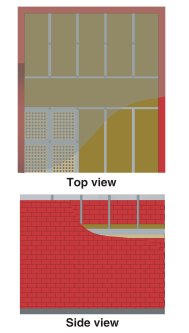Let’s Start Work
Together
Please feel free to contact us. We will get back to you with 1-2 business days. Or just call us now.
Brochure
Download our document to see specific data of the service and how we work.
FALSE CEILING CREATES AESTHETIC VALUE
False ceiling improves the aesthetics of the room. It hides the electrical wires, air-conditioning ducts, light fixtures, pipes and other fixtures. In case of any repairs, the panels of a false ceiling can easily be reassembled. False ceiling system is suspended a few inches below the main ceiling of the building with the help of metal suspenders. It is more economical to incorporate suspended ceiling than to get the entire ceiling renovated in case of any damages, as they are removable.
FALSE CEILING HEATS UP
When atmospheric temperature is more than room temperature, heat is transferred from the atmosphere to the inside of the building from the ceiling by convection. Due to this, air trapped between the main ceiling and false ceiling heats up, which transfers to the space below. The metal grid for false ceiling may also transfer heat to the space below. This increases the temperature inside the space below and creates discomfort. Such continuous transfer of heat increases the cooling load requirement and ultimately increases the energy bills.
- Atmospheric temperature can heat up the air inside the false ceiling
- It leads to increase in the room temperature and creates discomfort
INCEILING REDUCES HEAT TRANSFER
insulation material is placed on the metal grid above the false ceiling, it decreases the transfer of heat and reduces the cooling load requirement for air-conditioning in the building, This directly results in the building becoming more energy efficient and also helps in reducing the energy bills. It also increases the comfort in non air-conditioning buildings as heat from the false ceiling cannot transfer to the space below.
The insulation materials can be packed from all sides in insulation cloth for better performance and longevity of the product. These packed insulation materials are laid over the metal grid structure of the false colling. They also absorb some amount of heat from the metal grid and help lessening the thermall breach through the false ceiling.
Various combinations of materials can be used on top of the false ceiling layer. These are light in weight and have excellent thermal properties. These materials help Imit the ingress of heated air from the ceiling space to the space below. The suggested thickness here can vary from 25 mm to 100 mm, based on the required thermal resistance. This system can also be designed to suit the cooling requirements of the space.
Ideal For
Smaller spaces like individual apartments and residences, large spaces like office or colleges, larger spaces like airports, banquets and auditoriums.
- InCeiling insulation reduces heat transfer
- This reduces the cooling load on the AC
- This helps conserve energy
FALSE CEILING CAN HAVE ACOUSTIC PURPOSE
False ceilings can also be created for acoustic purposes along with the usual aesthetic effect. These are basically ceilings with perforation in them or with hollow spaces to let the sound travel. They can also be created to just dampen the sound from the floor above. This is a limited solution, which is incomplete without acoustic insulation pads.
FALSE CEILING IS A PARTIAL SOLUTION
The reason being, when the sound waves from the room hits the false ceiling, they will just rebound through the perfo-ration and create more disturbance. These sound waves also clash with the metallic grid and fixing system for the false ceiling, creating different ranges of reverberation, which results into echo. In case the ceiling is created to dampen the sound from the floor above, the hollow space in the ceiling will just amplify the sound. Also, the sound waves will also react negatively to the false ceiling material creating more acoustic discomfort. Additionally, the air from the AC will escape through the perforation, resulting into higher energy bills.
- False Ceiling can help absorb sound
- But it is not a complete acoustic solution
- So echo or reverberation issues may remain
INCEILING CAN RESOLVE ACOUSTIC ISSUES
Acoustic false ceiling system is used where sound absorption is necessary to reduce the echo and reverberation in the space. It also helps in dampening the sound transmission from the floor above to some extent. If a space requires acoustic comfort from below or a particular sound quality, acoustic false ceilings are very beneficial. On the other hand, sound is often transmitted from the floor to the space below and that disturbs the occupants there. Insulation materials can prevent that as well.
Open Cell Materials Absorb Sound Better
Acoustic insulation material should be open cell. They are porous so they absorb the sound better than the closed cell materials. The perforated gypsum or metal board can be used as a base material for insulation to provide space for the movement of sound waves. The material processes heat and absorbs the noise by allowing sound movement. The airborne sound energy is converted to heat during the process of sound absorption which produces the desired noise reduction levels which creates comfort in the other room.
NRC And Absorption Coefficient
The acoustic performance of false ceiling system is best evaluated by two parameters:
2) Absorption Coefficient
NRC refers to how much sound an insulation material can absorb, thereby reducing the noise within a room. Absorption Coefficient refers to the proportion of sound absorbed versus reflected by the surface. The higher the rating the better the noise reduction.
Aesthetic Value is a Bonus
Acoustic false ceiling insulation not only helps with sound absorption but also improves the aesthetics of the room and provides comfort. Not to mention, it provides the space to hide the electrical wires, air-conditioning ducts, light fixtures, etc. Suggested thickness here is 25 mm to 50 mm.
Ideal For
Home Theatres, Media Rooms, or any room where noise is an issue
- InCeiling Systems is a complete acoustic solution
- Made of open cell materials that absorb sound better
- It also adds to the aesthetic value of the ambience


